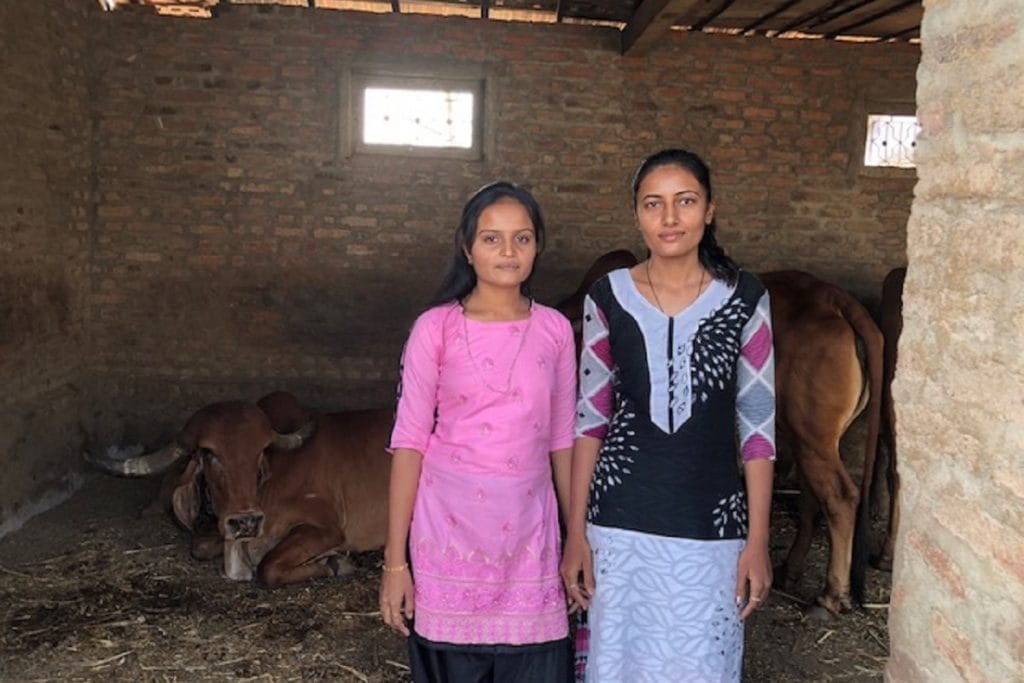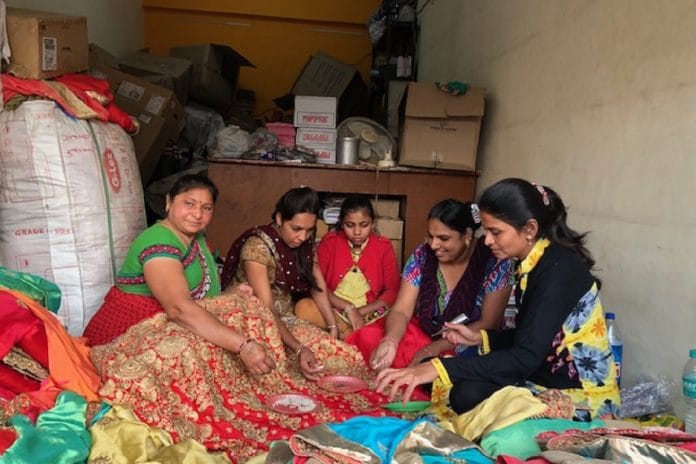As Gujarat CM, Modi earned goodwill of women voters. But anti-incumbency, local grievances, caste, and his policies at the Centre may play spoilsport this time.
Amreli, Gujarat: Bhavna Gondaliya hails from Gokharwala village in Amreli district. While she herself is an MA LLB, she realised there were very few livelihood opportunities for women in her district besides livestock rearing.
Around four years ago, Gondaliya decided to start the Bhagyalakshmi Mahila Credit Society, which works in the area of hand work on textiles, as well as finance. Today, her society provides livelihood to 2,500 women in Amreli district, and over 4,700 women are associated with it in some form.
Gondaliya credits the BJP and Narendra Modi for creating an enabling environment for women in Gujarat, and boosting their employment potential. In the forthcoming elections, she is unequivocally supporting the BJP.
“The BJP government provided several incentives and facilities to women. For women’s credit societies, we get cash credit at 9 per cent interest, as against 14 percent for others. On property to be registered in women’s names, there is zero stamp duty. Along with safety and security, Modi ji gave dignity to Gujarati women. Before him, nobody even considered women important before the elections. Nobody called us for sabhas. He changed that trend,” Gondaliya says. As she speaks, a group of women who work with her nod vigorously.
Neeta Patel, from Keriya Nagas village, is the president of the milk cooperative society in her village. “It is BJP all the way for us. Since it came to power, we can go out safely; we have employment opportunities,” she says.
In Oliya village, Varsha Devani is feeding her cattle. She supplies milk to the Amar dairy, and says she supports the BJP, even though she feels “neither the Congress nor the BJP really work”.
“But I feel Modi ji will do something good,” she says.
All’s not well for the BJP
Amreli district in the Saurashtra region of Gujarat is a hub for cooperatives.
In the 2012 elections, it was among the nine districts where the voter turnout among women was low – in fact, the gap between men’s and women’s turnouts was more than three per cent (5,49,952 men and 4,99,364 women).
The Election Commission has been focussing on these nine districts to improve women’s voter turnout.
Historically, women voters have been the backbone of the BJP in Gujarat, and as chief minister, Modi determinedly wooed the female electorate.
However, as the cliché goes, there’s another side to the coin. Amreli isn’t one of the districts where everything is expected to be hunky dory for the BJP. Currently, of the five assembly constituencies in the district, two each are held by the Congress and the BJP, and one by the Gujarat Parivartan Party.
Nearly 40 per cent of the district’s population belongs to the Patidar community, which has been protesting against the state government on the issue of reservations. This, plus local factors as well as issues like drinking water shortage have turned a significant section of women voters here against the BJP and Modi.
“Modi only keeps talking of ‘vikas’ (development), but where is vikas? There is absolutely nothing for women here. Our biggest problem is a shortage of drinking water, and for five or six days a week, women have to struggle to find water for their households,” says Krishna Patel, who works in the administrative section of the local school in Nesdi village.
She adds that hers is a Patidar-dominated village, and the community’s rebellion means most are backing the Congress.
A few streets away, Kajal Dudhat and Madhuri Waghariya are enjoying a relaxed afternoon conversation. Both express dissatisfaction with their local MLA in Savarkundla – state agriculture minister V.V. Vaghasiya – and say they want a change. The only difference is that while Dudhat believes the non-performing MLA should be shown the door, she still wants the BJP in power, while Waghariya wants a regime change.

“We can’t keep bringing the BJP to power. They have done nothing,” Waghariya says.
Bharti Soni in Oliya village, which also falls under the same constituency, is less forgiving.
“Demonetisation, inflation, GST have all affected us. Inflation particularly impacts us housewives. What has Modi done? He only talks big, does nothing. Just keeps travelling around the world. I want a Congress government here now,” she says.
As chief minister, Modi may have earned goodwill among women voters with his initiatives, but anti-incumbency, local grievances, fragile caste equations, and his policies at the Centre may end up playing spoilsport. Amreli, despite its low women voter turnout, may be a case in point.






